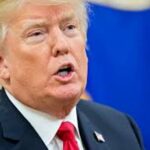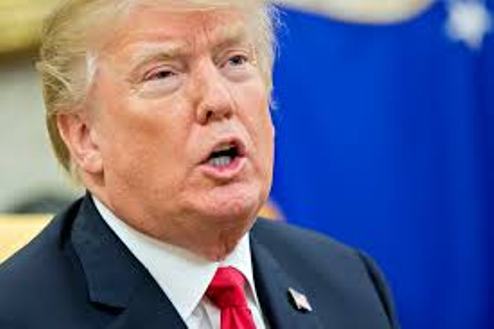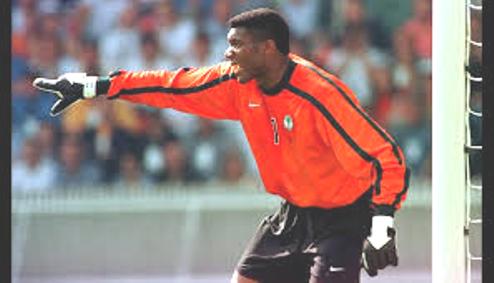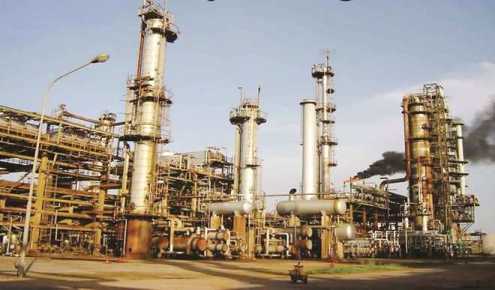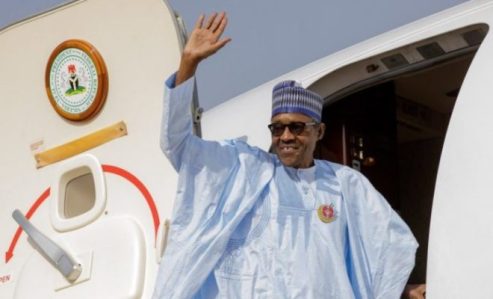
LAGOS OCTOBER 25TH (NEWSRANGERS)-WHAT kind of President is Muhammadu Buhari? In moments of national crisis, he abandons his duty post in preference for foreign trips of dubious value. Showing scant interest in domestic affairs, the President has embarked on another international trip, this time, to Sochi, Russia, for a three-day summit on gas and trade. His current trip coincides with the persistent ghastly reports of killings, robbery, banditry, kidnapping, disasters and economic depression at home, including debilitating petrol fire incidents in Onitsha, Anambra State, last week. It provocatively gives the impression of an uncaring President. Without opening up the economy and ensuring sound rule of law at home, foreign travels to attract investment is a complete waste of public fund.
Short of administering the country from the outer space, Buhari has made international travel a pet project. In the first three years of his first tenure, he was outside the country for a combined 404 days. That is one year and 39 days in 33 countries, according to a Saturday PUNCH computation last April. Even with his medical trips to the United Kingdom factored in, that is rather high for a country facing dire challenges of leadership. Apart from the UK, the President visited the United States for a total of 41 days. He was also at the United Nations General Assembly’s 70th, 71st, 72nd and 73rd sessions in New York.
His appetite for adventure took him to China, India, Jordan, Iran, Saudi Arabia, South Africa, Chad, France, Turkey, Poland, Malta, the United Arab Emirates, Morocco and Ghana. Others are Cameroon, the Gambia, Niger Republic, Mali, Qatar, Sudan, Ivory Coast, Togo, Republic of Benin, Germany, Senegal, Ethiopia, Egypt and Kenya in his first 36 months in office. When does he have the time to deliver on good governance?
Unfortunately, Buhari does not seem to realise the monumental task before him. Apparently, this is why in his second term, his penchant for jetting off to distant global locations has not waned. Between May 29, when he took the oath of office for the second term, and now, the President has taken to the air on several occasions.
Although he was in Saudi Arabia between May 16 and 21 for the lesser Hajj, Buhari drew consternation when he embarked on yet another trip to the same country just hours after he was sworn in for his second term on May 29. The President has also travelled to Ouagadougou (Burkina Faso), New York for the 74th UNGA, Japan (for the seventh International Conference on African Development) and South Africa (on xenophobia) from May to October. What does his foreign minister do?
Buhari does this against the backdrop of falling living standards at home and a bleeding economy. The President and his deputy, Yemi Osinbajo, received an allocation of N1.3 billion in this year’s N8.9 trillion budget, mainly for their international trips. Domestic trips constitute a low percentage of this allocation. Buhari has proposed a N3.3 billion budget to take care of his and his deputy’s trips in the 2020 Appropriation Bill before NASS. The government Buhari leads is piling up taxes and charges on the people without considering how to cut down the huge cost of governance.
In Buhari’s lethargic and bizarre four and a half years rule, Nigeria literarily burns. Insecurity has laid the country low; major highways are avoided by travellers for fear of being kidnapped. Interestingly, kidnapping has become the country’s fastest-growing and most lucrative business. A government panel found that bandits collected over N3 billion in ransom from 2011 to May 2019, widowed 4,983 women, orphaned 25,050 children and displaced 190,340 persons in Zamfara State alone. In the first four months of 2019, said the police, 1,071 persons were killed; kidnapping, banditry and communal strife have emptied farms and destroyed the livelihoods of many in parts of the country.
Starkly, the Global Terrorism Index estimates that Fulani militants killed about 1,700 persons from January to September 2018, six times more than the number killed by the bloodthirsty Boko Haram Islamist sect throughout that year. The economy is still distorted and sluggish, recording 1.9 per cent growth year-on-year last quarter, lower than the initial World Bank projection of 2.2 per cent. Youth unemployment is 55.4 per cent, according to statistics quoted by Aljazeera. Buhari’s tourism has also failed to reverse the decline in foreign direct investment that data from UNCTAD showed, had fallen 27 per cent to $3.4 billion in 2015, risen in 2016 to $4.44 billion on his watch, but plunged again to $3.5 billion in 2017 and to $1.9 billion in 2018. The Nigerian Stock Exchange reported that foreign portfolio investors pulled out N1.87 trillion assets in Buhari’s first term.
Globally, serious leaders demonstrate their humanity during national crises by sympathising and empathising with the people they govern. This provides a healing balm for the victims. It is said that all the words of a leader matter. They can provide comfort and wisdom amid uncertainty, or spread mistrust and hate. Repeatedly, Barack Obama demonstrated this. Whether it was Oklahoma and Arkansas ravaged by tornadoes or New Jersey savaged by Hurricane Sandy, he did not rely on White House press statements to reach out to the victims, but by personal visits. President Emmanuel Macron of France, last week paid his last respects to the four Paris police personnel that were killed by their radicalised Islamist colleague. Macron’s predecessor, Francois Hollande, attracted dozens of European leaders and others from the Arab world to hold a rally for freedom of speech, following the 17 people Islamist extremists killed over the 2015 Charlie Hebdo cartoon in Paris. Just recently, the German Chancellor, Angela Merkel, attended a vigil in a Berlin Synagogue to demonstrate her sympathy for the families of the two victims of an extremist attack and in solidarity with the Jewish community, which survived the planned mass murder during its recent Yom Kippur festival. Here, Buhari seems to be inured to dozens, sometimes hundreds of lives lost to attacks by Boko Haram jihadists, armed robbers, Fulani herdsmen or kidnappers.
Democracy has no room for a leader that is so detached from the people. With barely three and a half years left of his eight-year rule, it is time for the President to sit back at home and start attending to urgent state matters on the basis of which he was elected. He should stop blaming past presidents for everything that is wrong with Nigeria. Buhari should take all the excuses off the table. In “How to run a country: A 10-point manifesto for leaders who stand – and want to deliver,” The Independent (UK), says, “The wrong way to achieve a legacy is to claim: ‘My predecessor was an idiot and my successor is a traitor.’”
Buhari should be on the edge of his seat for Nigeria’s daily electricity power generation, which is put at a miserable 4,000 MW. He needs to sell off some planes from the Presidential Air Fleet. Apart from curbing his predilection for foreign trips, selling the aircraft would be in consonance with his campaign promises. What is a President doing with a fleet of nine aircraft in a country where the basic essentials of life such as electricity, water, good healthcare facilities, good roads and schools are lacking? If he wants to stand out as a President, he should start putting the people ahead of himself.
The President, therefore, needs to stay at home, drive development and instil cohesion into his administration. Whispers of some aides taking charge have blown into the open with in-fighting reported among the security agencies, once boiling over into near shoot-out between the SSS and the EFCC. Moreover, poverty, collapsing infrastructure and mass despair prevail. Stress within the polity has pitted various groups into mutually antagonistic factions and many openly profess frustration with the union. All this as well as those who feel bitterly alienated, require reassuring, firm, responsive leadership, not presidential absenteeism.
Nigerians should constantly hold leaders at all levels more accountable. This is the basis of civic political culture without which democracy can hardly thrive. At the current anaemic state, managing the economy requires a more hands-on approach for it to start functioning properly. As long as the appalling news of insecurity, bad roads, lack of electricity continues to dominate headlines, no amount of foreign visits can attract investors to the country. Serious leaders plan and see to its implementation. The President should make it a habit to visit all states of the country, drive on the roads the people drive every day; so that he can see the messy ground-level reality and feel the pains of the people he governs.
Punch Editorial
